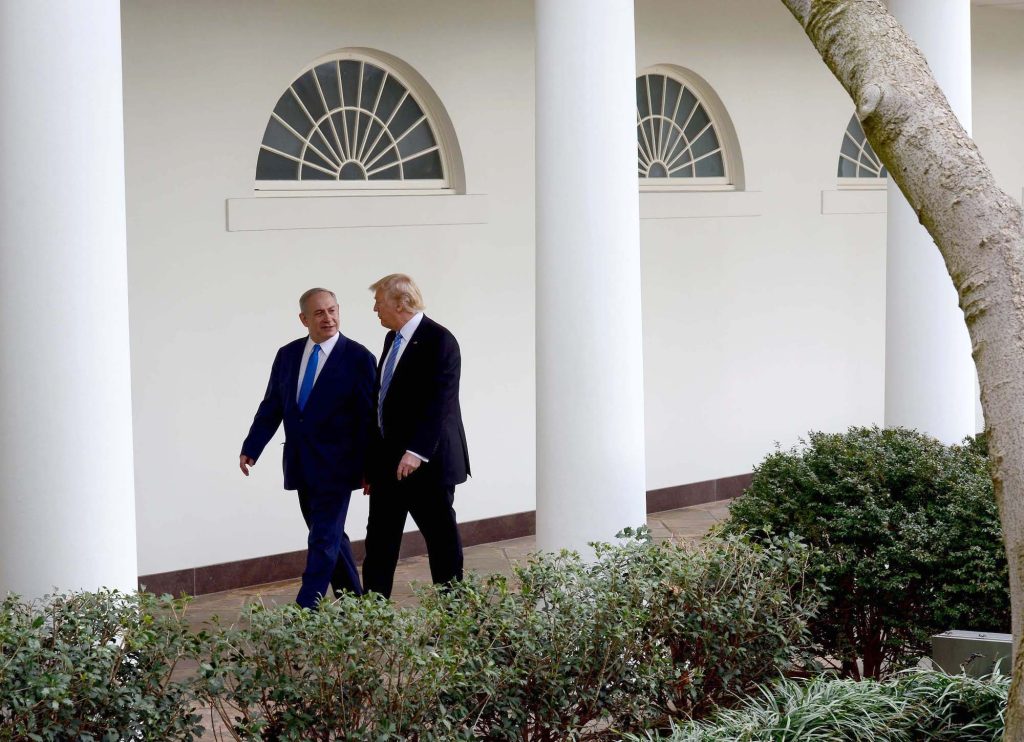Benjamin Netanyahu’s delegation was shocked when they saw gold-plated toilets in Trump Tower during a 2016 visit to New York. Months later, staffers in the Israeli prime minister’s spartan office were still talking about them. Mr. Trump must have felt the same shock a year later when he entered Mr. Netanyahu’s crumbling two-story state residence in Jerusalem.
Though the political cultures and personalities in Israel and America are quite different, Messrs. Trump and Netanyahu have something in common. Both men have run for election under the heavy cloud of criminal charges. Recent polling highlights another commonality: Their run-ins with law enforcement have proved beneficial to them.
An August Wall Street Journal survey of Republican primary voters revealed that 59% favor Mr. Trump over the other contenders. Forty-eight percent said his four indictments made them more likely vote for him. Asked about the result, pollster Tony Fabrizio said, “It is shocking that a potential general election rematch between the last president and the current one is polling this closely, given Trump’s indictments.”
Yet Israel has experienced the same dynamic over the past seven years. Mr. Netanyahu was languishing in the polls in 2016. His main rival, Yair Lapid, had overtaken him, and public support for his Likud Party had dropped low enough that its right-wing bloc looked set to lose its majority in the Knesset, Israel’s Parliament. Mr. Netanyahu’s standing looked more precarious than ever in January 2017, when police detectives rolled up at his official residence to question him under caution of suspicion, in two separate cases, of bribery, fraud and breach of trust. His political career seemed doomed—until his party leapt ahead of Mr. Lapid’s to a four-seat lead in subsequent polling.
In February 2018, the police formally recommended that the prime minister be prosecuted. Two of his closest confidants agreed to serve as witnesses for the state. The results were swift and devastating—for the opposition. Polling revealed that Likud maintained its 30 seats, putting it far ahead of all other parties. Months later the police lobbed another bribery charge against the prime minister.
In February 2019, Attorney General Avichai Mandelblit announced his intention to indict Mr. Netanyahu in all three cases—less than two months before the general election. That, too, followed the familiar script: Likud won 35 seats, a 16-year party record. Before the criminal proceedings began, Mr. Netanyahu’s party had never secured a million votes in a general election. Likud has since crossed that threshold five times.
For years the conventional wisdom in Israel was that a prime minister couldn’t stay in office while under investigation. Mr. Netanyahu even argued as much in 2008, when he said of the beleaguered Ehud Olmert: “This prime minister is sunk up to his neck in investigations and has no moral and public mandate to decide fateful issues for the State of Israel.” Bibi has since taken the opposite tack, and his trial now earns coverage at the end of nearly every news broadcast. This episode is now in its eighth year—and, from his political perspective, long may it live.
The lesson for the U.S. is clear: A criminal indictment isn’t necessarily a death sentence for a politician’s career. It can be the special ingredient that propels him to new heights.
This won’t always be the case. If a political aspirant is caught behaving in ways directly opposed to what he professes on the campaign trail, he may have to bow out. But when a candidate’s persona centers on fighting the “deep state” and a powerful elite and the indictment seems to represent elites’ attempt to thwart him, the voters will perceive the criminal proceedings as an extension of a political battle.
This news is especially unfortunate for this year’s gaggle of Republican presidential candidates. If they come out swinging against the indicted candidate, they will be seen as collaborators of the deep state. If they back Mr. Trump, they surrender their standing to compete, because the original is always preferable to an imitation.
Israeli politics is fringe theater, run on a shoestring budget without a golden toilet in sight. But sometimes Israel is America’s Off-Broadway. The show seems poised for the big stage in November 2024.









